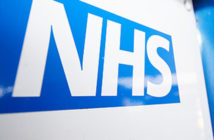As September is getting closer, the UK weather seems more than ready to usher the autumn season in, with our glorious heatwave long behind us.
The colder months in the UK can mean many things, but for a lot of people, it can mean ill health. As the weather gets cooler, bugs and viruses seem to abound. What many may not realise though is that many Britons will avoid a non-urgent GP appointment or hospital appointment this winter, all to help ease pressure on the NHS.
Why are people so worried about the NHS?
According to a survey by personal injury solicitors Your Legal Friend, 86% of us are more than aware of the publicised pressures on the NHS right now, things like budget cuts and lack of investment. This public concern for our national treasure that is the NHS is leading many of us to hold off rather than seeking treatment from our struggling health service.
Why is this problem?
In many ways, it can be a good thing. People who turn to their pharmacist or 111 before running to A&E or their GP, particularly in non-emergent cases, are accessing vital health support services that are designed to ease the strain on our GPs. Pharmacists are knowledgeable and trained to give advice on many ailments, and many offer private rooms to discuss more delicate matters.
However the study did find that 80% of people would wait up to a month before chasing up an expected follow up appointment with their healthcare provider, placing their own health at risk by not following up on an appointment that may have been missed through human or clerical error.
9% stated they would wait until they were contacted, which is very risky, if your appointment letter has been lost in the post!
Data last year showed that more people were waiting longer than the official 18 week target for non-urgent treatment, with waiting times being their highest in nine years.
While it’s important we use our NHS properly in the winter months, to ensure the service is not too overloaded, we should never place our own health at risk. So what can we do?
Make notes
Keep a note of when you should expect to hear back from a test result, or when you might receive a referral letter. If correspondence doesn’t come in time, chase it up!
Ask questions
Our doctors are busy. While we think we’re getting the whole picture, the best way to avoid miscommunication is to ask questions and keep notes of any answers.
At the end of the day, the NHS exists to keep us healthy, if we delay treatment and our condition worsens, we are only adding a more costly burden to the NHS. So it’s always best to keep on top of your own medical treatments.




